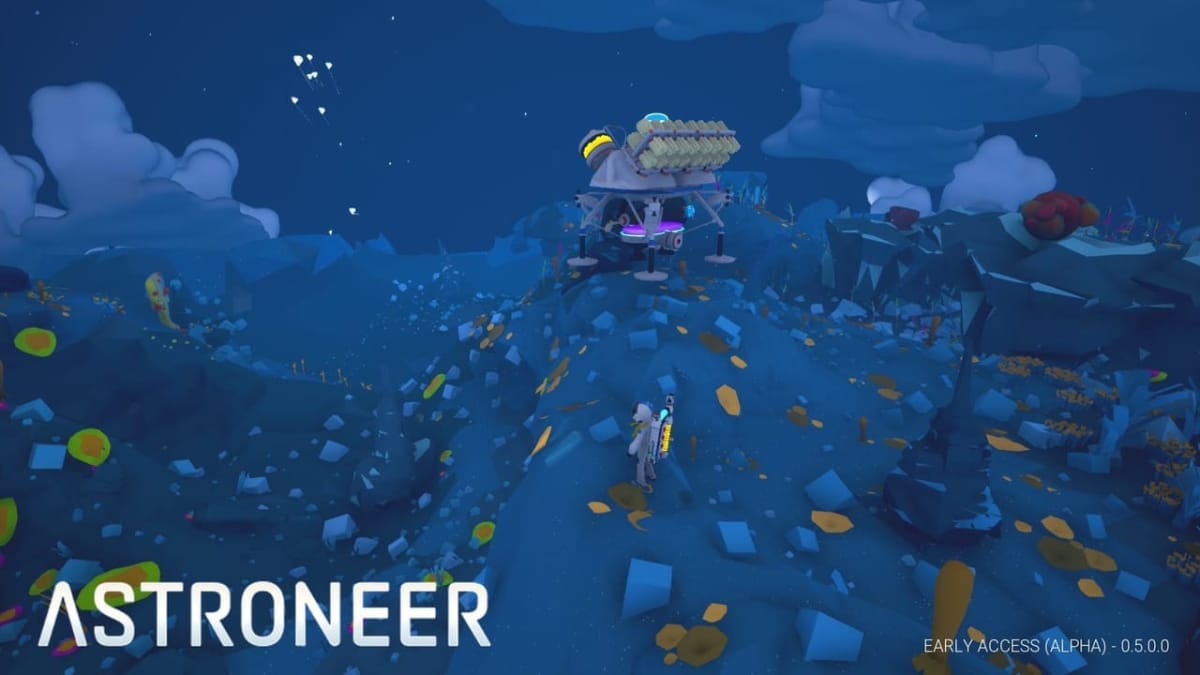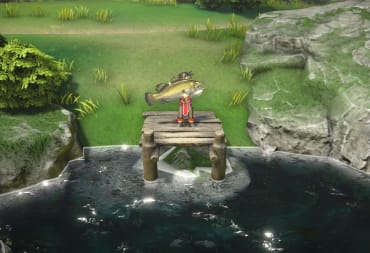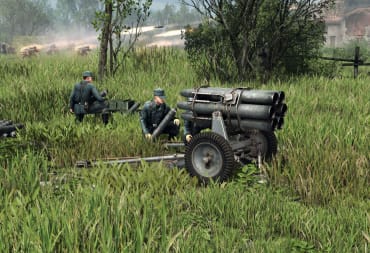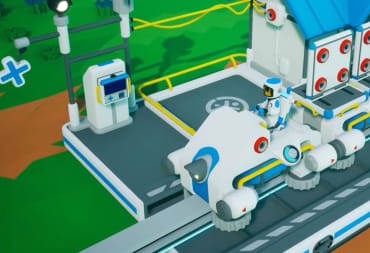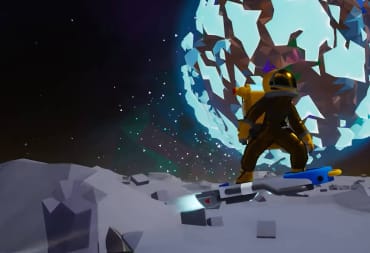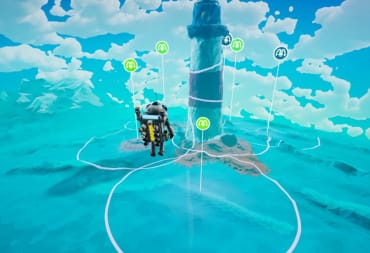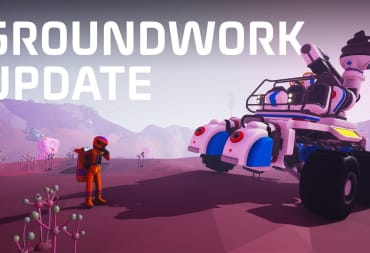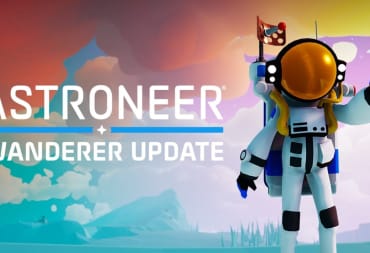With each passing day, the possibility of ubiquitous space travel nears ever closer. There are untold valuable resources just in our own little asteroid belt, nevermind the countless planets beyond our home solar system. In Astroneer (developed & published by System Era Softworks), you take on the role of a futuristic gold rusher who heads out into the great void to strike it rich. That's what the story aims to be, although it hasn't quite gotten there yet.
You begin your journey by selecting a one-man capsule to land on the planet below. You're then treated to a smooth animation where you're launched from an orbiting space station down onto your new planet. The pod that deposits you onto terra firma is the focal point of your first base, acting as the hub from which you'll expand outwards. It has an unlimited oxygen supply and a measly two spaces of storage on board.
The first goal of any new player is to acquire some resin & compound, two essential materials for building your basic equipment and buildings. This is accomplished through the use of the terrain tool, a powerful device that can drill through the ground at range. Any valuable materials you free from the ground will be sucked up and added to your backpack as a single "stack" of that element. Your backpack serves as your inventory - you literally carry these chunks of material on slots on your character's back. You're also able to craft certain small devices as you unlock them such as canisters (for storing dirt or rocket fuel), miniature solar panels, or beacons that can mark a position on the planet.
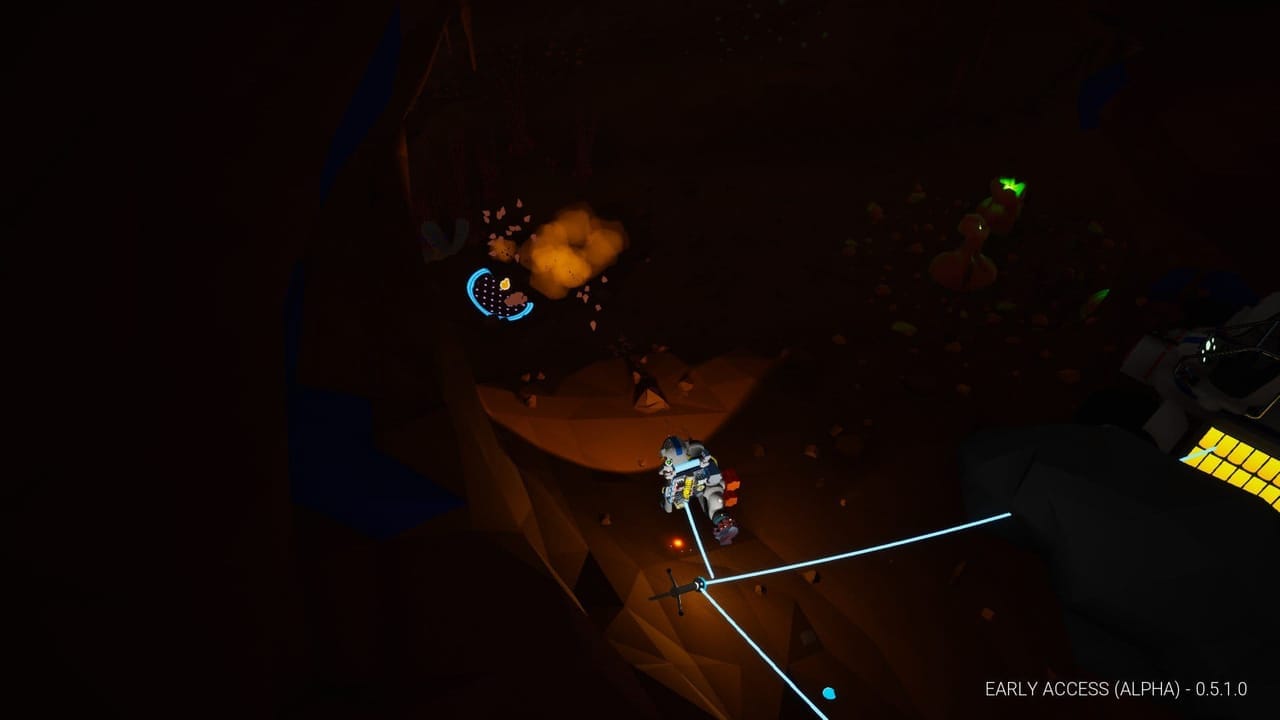
You'll have only a handful of equipment & buildings at your disposal in the early game; getting more is done through the game's Research system (which was recently revamped). You have to be on the hunt for giant, colorful blobs called "Artifacts" and place them in a Research Chamber. After a few minutes of scanning, the item poofs and you'll get some Research points.
One of the most fun (and most useful) bits of equipment you can build is the rover. On my first generated world, I eagerly equipped one with the bare essentials of a solar panel and a seat. I then set about to explore the world. Frustratingly, there's no compass or heads-up display for navigation so you'll have to occasionally hop out in order to figure out your directions. Vehicles & your base put out a beacon into the sky, but it eventually disappears as you drive further and further away.
One of the navigational quirks of the game is due to the planets being actual spheres: I had once found myself confused at my compass apparently drifting to one direction as I periodically got out to check my heading. It took a moment for it to click in my head - I had discovered my planet's South Pole. It was a really cool moment, and it was the first time that the game's navigational challenges really dawned on me.
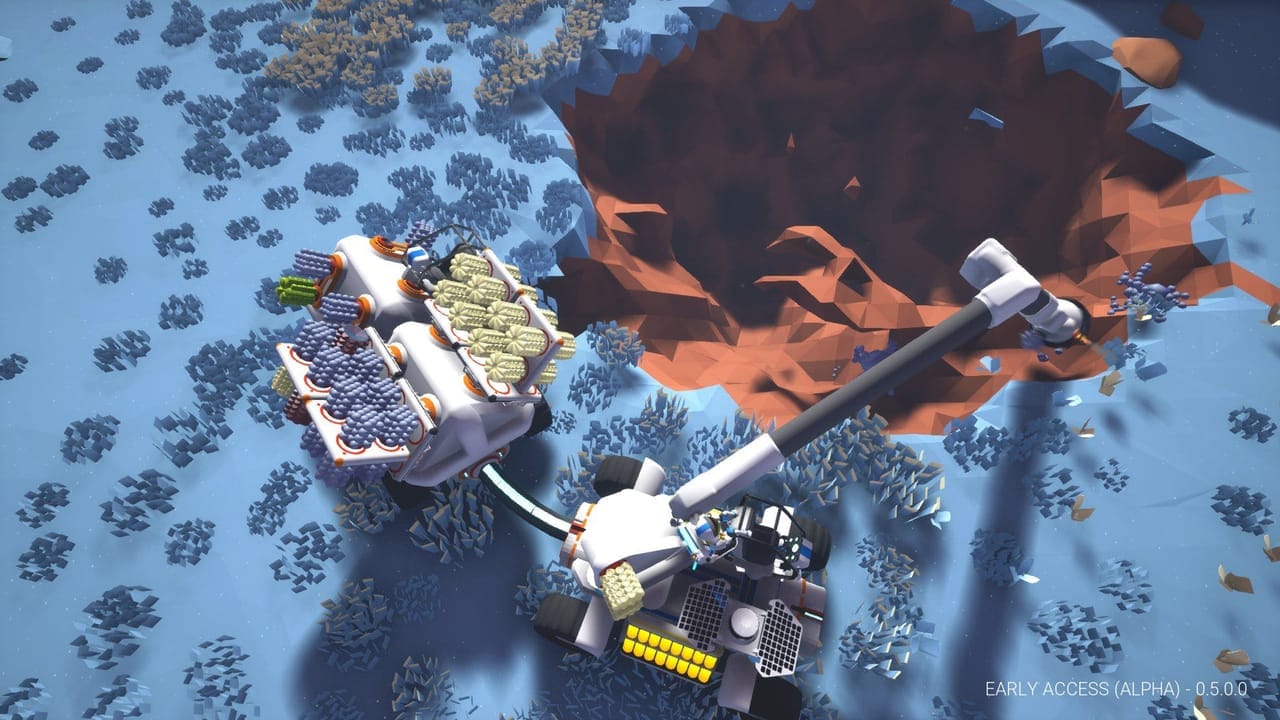
Even with a compass and deployable beacons, it's a bit easy to get lost if you're not careful. Planets aren't incredibly huge in Astroneer, but they're large enough that it's very easy to get lost if you stray too far from familiar territory. If you happen to die on an excursion, you'll respawn at your base and you'll have a tough time finding your vehicle against unless you're lucky enough to happen upon it. (Fortunately, they can be replaced if need be.)
While there's plenty to check out on the ground, Astroneer currently has six different types of planets. All it takes to make it to another world is a spaceship & some fuel. Each planet has their own unique hazards to contend with like deadly tumblespikes on the Arid world and creatures similar to Sarlaccs on the Radiated world.
The different worlds also have different resource distributions. Malachite & Lithium are plentiful on the surface of Radiated worlds, but good luck finding the essential Resin or Compound. Once you get into space, it is perhaps easier to get rare resources & Artifacts by flying to other worlds rather than delving into Terran caves.
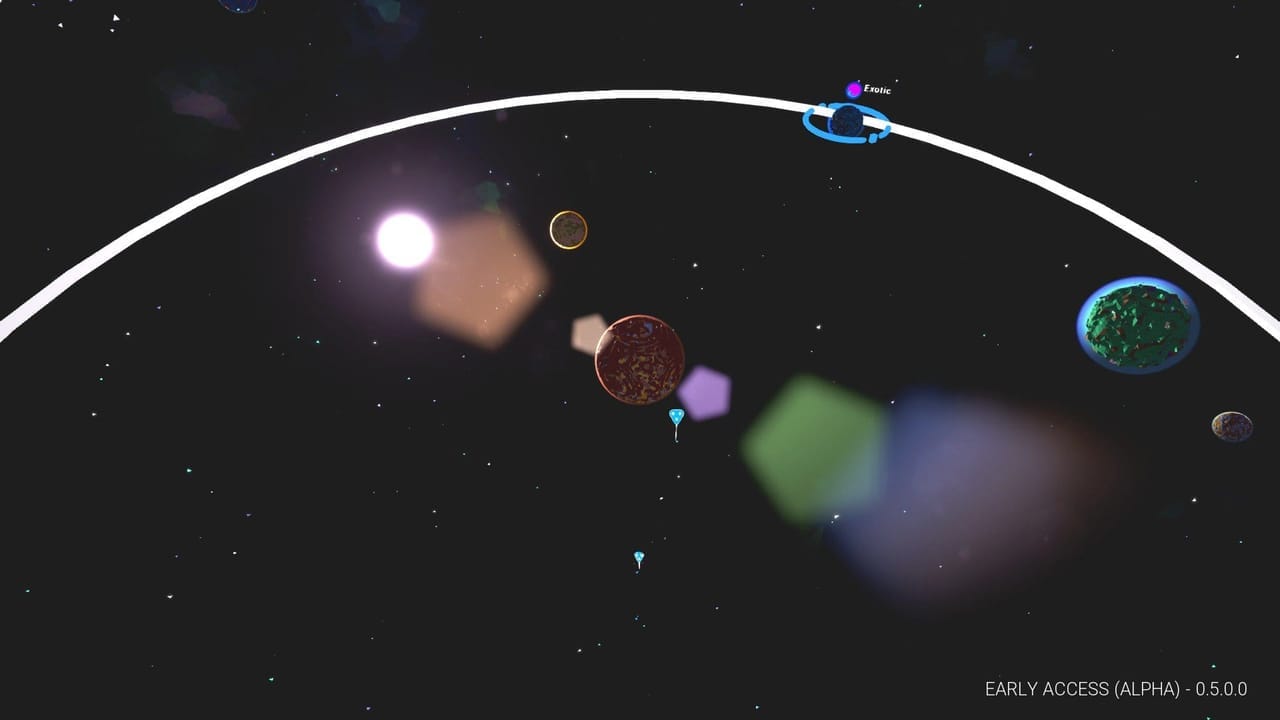
Traveling to other worlds involves a system where you can only go so far - you'll likely have to wait a few minutes in space as the orbits align. I often found myself hopping from planet to planet to make it to my eventual goal and taking an altogether different route as the orbits had shifted after spending some time on the new world. I appreciate the bit of realism this brings to the game, but I wish I had the option to take more direct trips and not have to wait.
It's not that bad of an idea to explore some other worlds for fun or easy mining, but setting up a base is another challenge entirely. Even with the largest spaceship and efficient storage, you'll find that you'll likely need to make several trips or make use of a Trade Platform to exchange materials for the ones you need to flesh things out. While you could build a huge, sprawling base like that one you likely have on your home planet, it's much easier to keep a smaller, more efficient mining camp and ferry any of the materials or artifacts back to your homeworld for processing.
A note of caution for avid explorers: It is very much possible to end up trapped on a world with no basic materials, no fuel, and no way to build the facilities to make more fuel. I had failed to properly prepare in my first attempt at setting up a base and ended up having to start over. As a fan of Dwarf Fortress, I am personally okay with this kind of difficulty. However, more casual players may be turned off by losing all of their work.
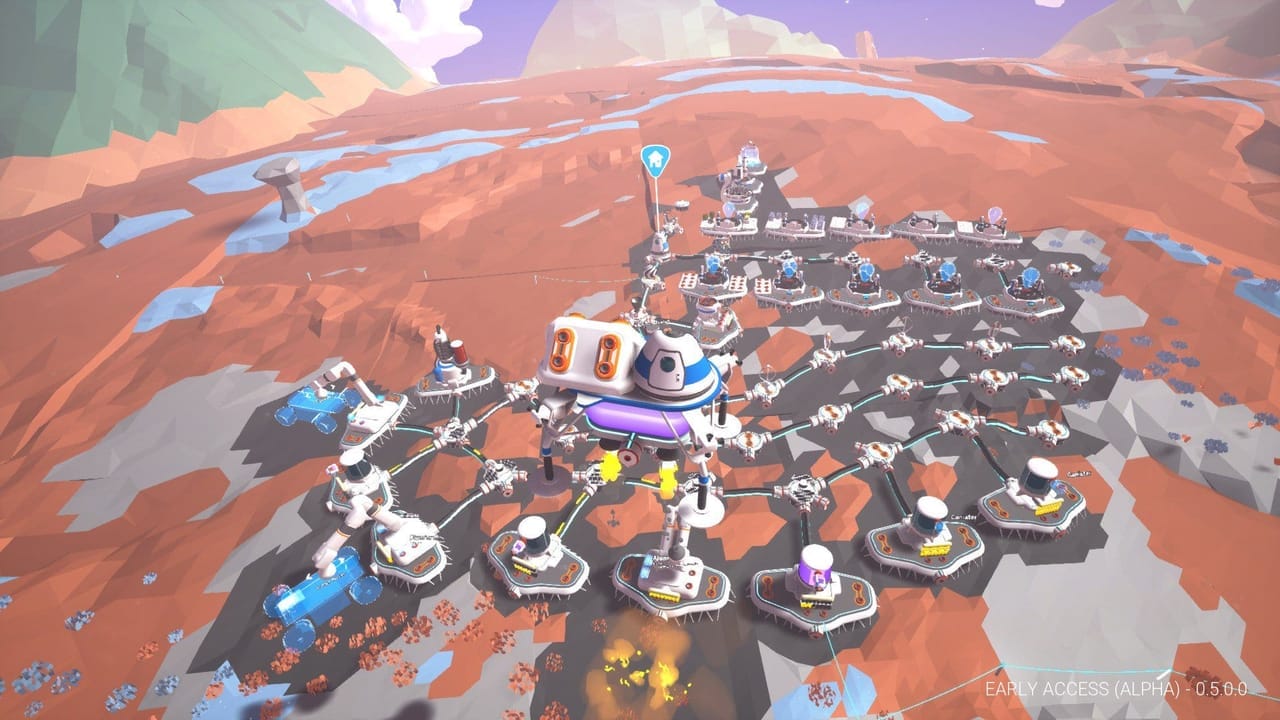
I had a good bit of fun with the game, but Astroneer is an Early Access title that is still building out its core systems. At the moment, the core gameplay loop boils down to gathering materials to build stuff, researching artifacts to have more stuff to build, and then back to gathering materials to build the things you just researched. There are a handful of objects you can only find by exploring (such as thrusters or legacy testing "marble" objects that some players collect for fun), but pretty much everything boils down to this loop right now.
You don't have to go it alone - up to four people can currently hop into your game. I played for a few hours with a fellow editor and found the netcode a bit wanting at the current stage of the game's development. Objects carried by my partner would lurch around a bit whereas they would otherwise move smoothly on my screen. The netcode is one of the things slated for improvement in the coming months along with the ability for eight players to be in a game and a number of other features.
As the game stands right now, Astroneer has a firm grasp of where it would like to go. The basics of the game's systems have been in for some time, and now System Era Softworks are in the process of refining and improving those systems in monthly updates (most recently with an overhaul to the game's research system and subsequent tweaking the following month). The developers make use of Trello to lay out the game's roadmap, and the next few months should see further improvements to the game's core systems. The release will be preceded by the introduction of more things to do besides researching & building, and post-release content plans include mod support, living creatures, automation systems, and a whole lot more.
Graphically, Astroneer is simple and cartoony. Each planet has its own distinctive visual look, and planets are separated into biomes with their own distinct colors, plant life, and (in some cases) hazards. For a game that lets you literally dig to the (currently empty) core of the planet, I had encountered no issues with the world geometry tearing or leaving noticeable gaps. I can't recall anything in terms of visual bugs or hiccups when it comes to how the game looks. Although it's still in Early Access, it's quite well-polished in terms of its visuals.
The music in the game is an absolute treat. Dutch artist Rutger Zuydervelt composed over 44 distinct tracks for the game and you'll have all sorts of different tunes accompanying you whether you're delving deep into caves or flying between planets in space. The sound effects are equally pleasant and fitting for the game's cartoonish style. Digging up certain materials or objects will result in a sort of "popping" sound, and rarer materials will sound off an epic and distinctive musical note. It gets to the point that you can tell what you've just dug up by the sound alone.
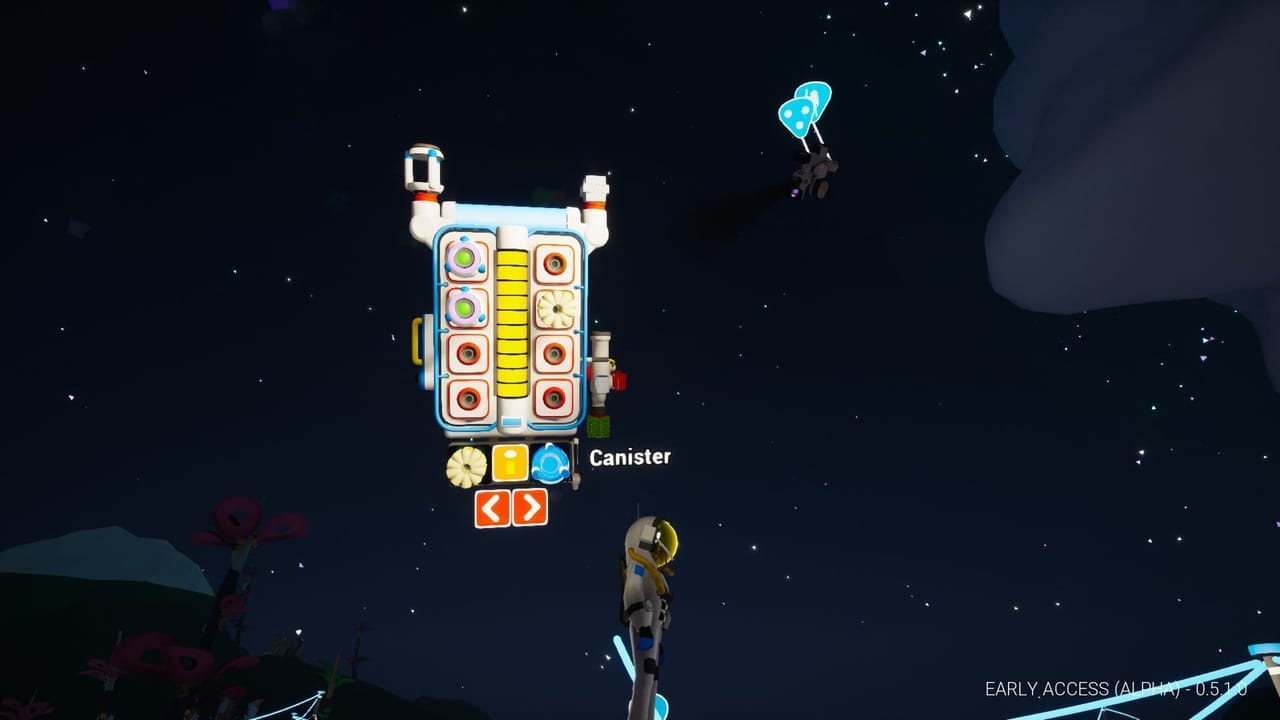
I had little in the way of issues with Astroneer. The rover driving controls are an absolute mess in my eyes, operating on a scheme where you'll move in the direction the camera is facing rather than the direction the vehicle is facing. (If you're looking behind you, pressing W will move you backward relative to the vehicle's "front"). You can access your backpack by clicking on it, and I've accidentally brought it up while clicking around to dig more times than I can count. Even with the occasional wonkiness, Astroneer had surprisingly few major issues in the game and is otherwise a smooth experience. As for the rougher bits, they will likely be sorted out as the game's development progresses.
Astroneer is well on its way to becoming a good sandbox title that you can sink a nice chunk of time into with your friends. If you're to just run around some planets and explore for fun, it has everything that you'd want (and those features are slowly growing). If you need a little bit more out of the game like quests or overarching goals for your character, it'll be some time before those features make it into the game. I enjoyed the 53 hours I spent running around planets & experimenting with the game's systems on the PC version and I'm eagerly looking forward to the addition of quests and more complex gameplay.
Our Astroneer preview was conducted on PC via Steam with a code provided by the developers. It is also available on Xbox One and is set to release sometime later this year.
What do you think of Astroneer? Do you think the game sounds fun in its current state or do you need more to do besides exploring planets & collecting materials? Let us know in the comments below!
Previews you can trust: To ensure you're getting a fair, accurate, and informed review, our experienced team spends a significant amount of time on everything we preview. Read more about how we review games and products.
Have a tip, or want to point out something we missed? Leave a Comment or e-mail us at tips@techraptor.net
